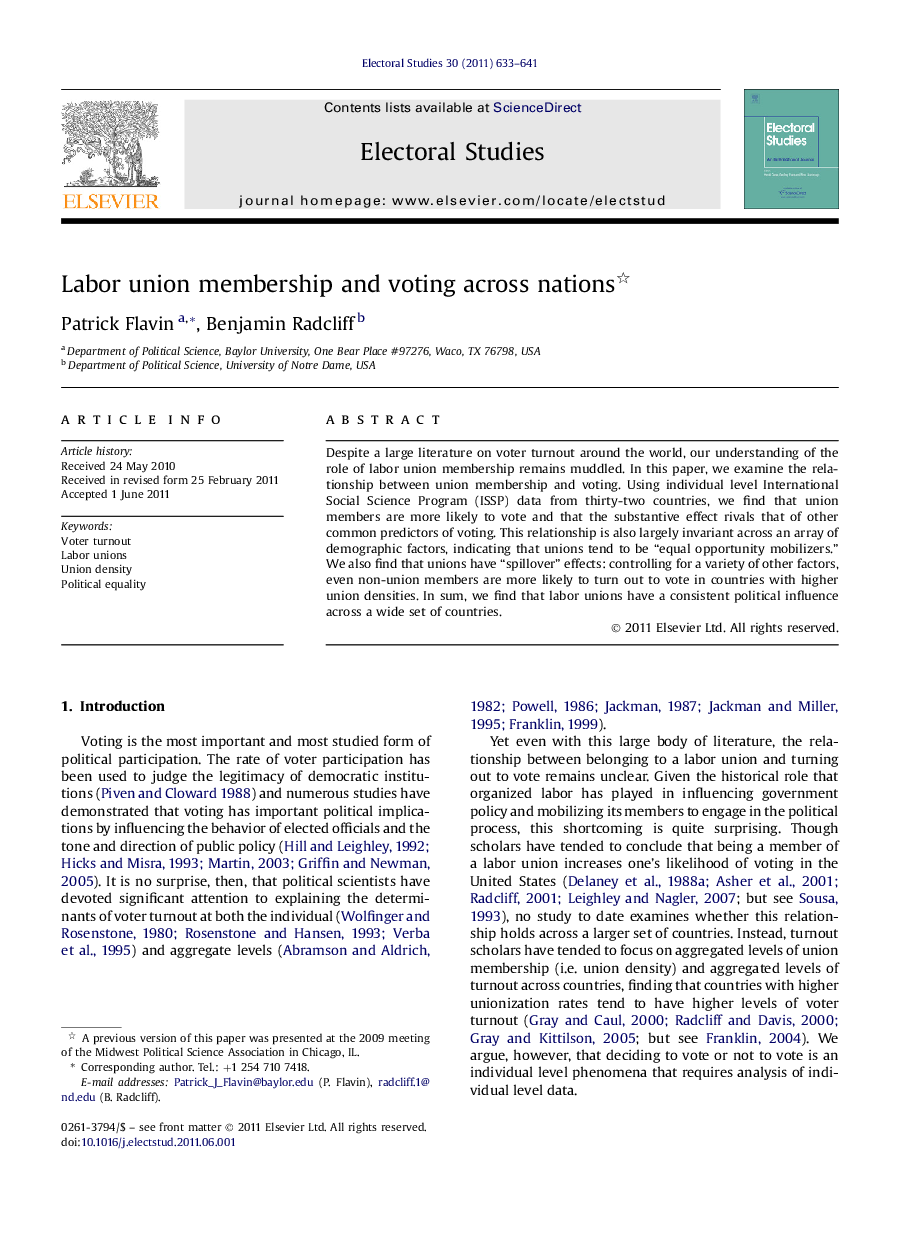| Article ID | Journal | Published Year | Pages | File Type |
|---|---|---|---|---|
| 1052261 | Electoral Studies | 2011 | 9 Pages |
Despite a large literature on voter turnout around the world, our understanding of the role of labor union membership remains muddled. In this paper, we examine the relationship between union membership and voting. Using individual level International Social Science Program (ISSP) data from thirty-two countries, we find that union members are more likely to vote and that the substantive effect rivals that of other common predictors of voting. This relationship is also largely invariant across an array of demographic factors, indicating that unions tend to be “equal opportunity mobilizers.” We also find that unions have “spillover” effects: controlling for a variety of other factors, even non-union members are more likely to turn out to vote in countries with higher union densities. In sum, we find that labor unions have a consistent political influence across a wide set of countries.
► Labor union members are more likely to vote than non-members. ►Mobilizing effect is largely invariant across an array of demographic factors. ► Even non-union members are more likely to vote in nations with higher union density.
